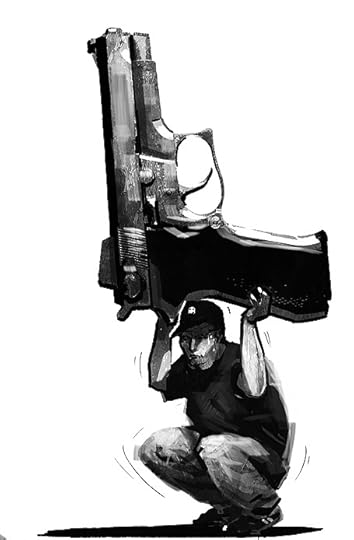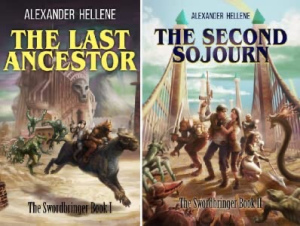Under the Gun

There’s a storytelling trope that I’ll paraphrase: the harder you can make your protagonist’s life, the better.
Books, movies, TV shows, plays, whatever–audiences want to see their heroes succeed, but want to see them struggle to do so, to overcome seemingly insurmountable obstacles and, through skill, grit, and determination, never give up and win the day.
This is why we thrill at little hobbits taking down Sauron . . . a middle-ages scholar with his infant daughter in tow facing down a robotic killing machine from the future . . . one man saving his daughter from the exiled former President of a Latin American island nation . . .
You get the idea.
If it’s too easy on our hero, we’re bored. If our heroes overcome everything in a manner that is not believable, we’re not taking it seriously. It’s a fine line.
There’s a certain subset of this, though, that I like. I like stories where the heroes are always under the gun, on the run, being thwarted by villains who are just a little bit quicker or cleverer. And while the hero doesn’t lose all the time, they certainly don’t have an easy go of it.
The technical term for this is “misdirection”: make your reader think A is going to happen, but have B happen instead. I find this description still inadequate to explain what I’m taking about, so let me give some examples:
Brian Niemeier is really good at this. Both his Soul Cycle and Combat Frame XSeed do this great. Just when you think the good guys are going to pull it off, here comes the bad guys to foul things up. Remember: your enemy always gets a vote.Ben Cheah‘s Dungeon Samurai also pulled this off with aplomb. You never knew who was going to make it out alive.Jon Mollison is likewise good at this. I‘m always on the edge of my seat reading his stuff. Sudden Rescue was particularly thrilling.These fine authors will hate to be associated with this movie, but the one thing The Last Jedi did well was create this sense. Of course, this was done more to subvert than to tell a good story that makes logical sense, but credit where credit is due.Anyway, some techniques, which can be combined in many different ways, include:
A recurring villain the heroes cannot beat.An alternate defensive villains’ plan the heroes didn’t know about.A defection, a traitor, or a double agent in the heroes’ midst.The heroes having bad information.A strict time limit that raises the stakes.This is just a small sampling, and a way for me to try describing a storytelling trope I’ve been having difficulty articulating for a while. Why do some of these tropes work really well, while others are just cool but not exciting? I don’t know. I suppose it all comes down to execution.
I add these elements to my own writing. Check out some action-packed, high-stakes sword-and-planet here.




